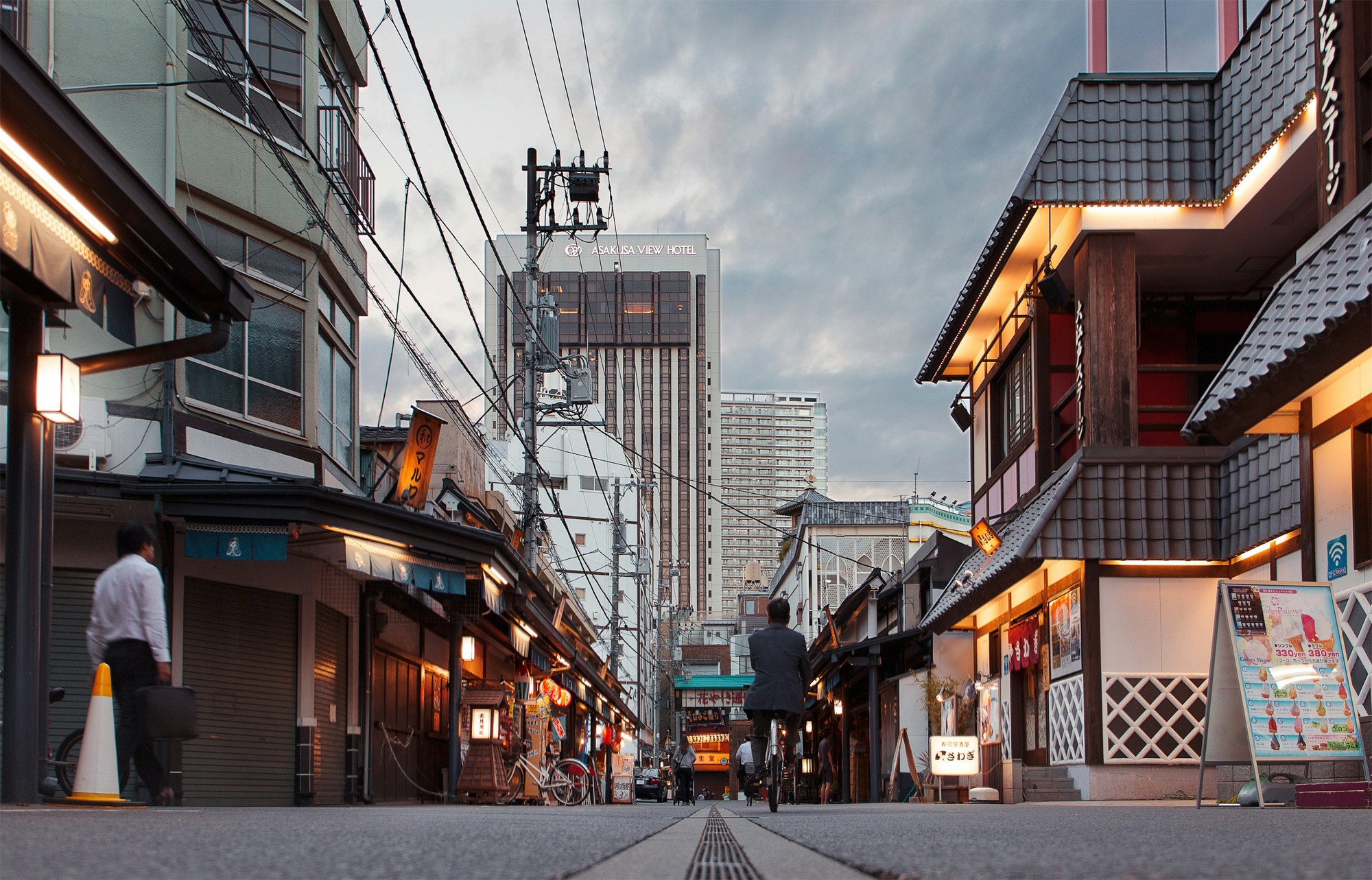Japan’s reputation for cleanliness is well-known around the world, with its spotless streets, well-maintained public spaces, and litter-free transportation systems standing out to visitors. What’s particularly striking is that Japan achieves this without an abundance of public trash bins or cleaning staff visible in public areas. Instead, cleanliness in Japan is deeply ingrained in the culture, lifestyle, and mindset of its people.
This article explores the many factors—cultural, social, historical, and environmental—that contribute to Japan’s cleanliness and how these practices have become integral to Japanese society.
1. Cultural Emphasis on Cleanliness (Shinto Influence)
One of the primary cultural reasons for Japan’s cleanliness stems from Shintoism, Japan’s indigenous religion. Shinto places a strong emphasis on purification and cleanliness, both in physical and spiritual contexts. According to Shinto beliefs, cleanliness is essential to keeping the body and soul pure, and it is often associated with rituals to remove impurities.
Shinto’s Role in Shaping Cleanliness:
Shinto shrines, which are scattered throughout Japan, have long served as places of worship where purification rituals, known as “misogi,” are performed. These rituals involve washing the body to cleanse away impurities before engaging in religious activities. This concept of purification has permeated everyday life in Japan, influencing how people perceive cleanliness in their homes, streets, and public spaces.
Even today, the value placed on cleanliness and purification continues to manifest in modern practices. This cultural heritage contributes to the expectation that maintaining cleanliness is not just a personal responsibility, but a collective one that benefits the entire community.
2. Social Responsibility and Group-Oriented Culture
Japanese society is highly collectivist, meaning that people prioritize the well-being of the group over individual desires. In this context, keeping public spaces clean is seen as a shared responsibility. People in Japan tend to be conscious of how their actions affect others, and this mindset extends to their approach to cleanliness.
How Social Responsibility Impacts Cleanliness:
There is a strong sense of social responsibility in Japan, and littering is considered disrespectful to the community. From an early age, children are taught that they are part of a larger group and that their actions can positively or negatively impact the people around them. This awareness creates a sense of obligation to keep shared spaces clean for the benefit of all.
For example, in schools, students are responsible for cleaning their classrooms and communal spaces daily. This practice, known as soji, instills a sense of ownership and respect for public spaces. The idea that everyone has a role in maintaining cleanliness carries into adulthood, where people take personal responsibility for cleaning up after themselves, even in public areas where cleaning staff might not be present.
3. Minimal Use of Public Trash Bins
One notable aspect of Japan’s cleanliness is the absence of public trash bins in many cities and public spaces. While some might assume that the lack of bins would result in litter, the opposite is true. People in Japan typically carry their trash with them until they find an appropriate place to dispose of it, such as at home or in designated recycling areas.
Why the Lack of Trash Bins Doesn’t Lead to Littering:
The scarcity of public trash bins originated after the 1995 sarin gas attack in the Tokyo subway, which led to heightened security measures, including the removal of many public bins. Despite this, Japan has maintained its cleanliness, largely due to the strong cultural expectation that people take responsibility for their own waste.
Carrying personal trash is considered normal in Japan, and it’s common to see people carrying small plastic bags for this purpose. Additionally, public spaces like train stations and parks have strict sorting rules for recyclable materials, ensuring that waste is disposed of properly when bins are available.
4. Education and Early Socialization
Cleanliness is a value that is taught to Japanese children from a very young age. In schools, students are involved in cleaning activities as part of their daily routine. This system, where students are responsible for tidying their classrooms, hallways, and restrooms, teaches children the importance of taking care of shared spaces and instills a lifelong habit of maintaining cleanliness.
The Role of Education in Promoting Cleanliness:
Japanese schools do not hire janitorial staff to clean classrooms; instead, students themselves are responsible for tidying up after lessons. This practice helps foster a sense of responsibility, cooperation, and respect for one’s environment. By learning that cleanliness is a communal effort, children grow up with the understanding that they are expected to contribute to maintaining public spaces.
Furthermore, during national events or celebrations, it is common for students and community members to participate in mass clean-up activities. For example, during festivals, participants clean up after themselves, and volunteers often assist in keeping event spaces tidy. These practices reinforce the cultural importance of cleanliness and ensure that people continue to uphold these values as adults.
5. Respect for Public and Private Spaces
Respect for shared and public spaces is a core aspect of Japanese culture. People are careful to avoid disrupting the environment, and this respect extends to ensuring that public areas remain clean and tidy. Whether it’s public parks, sidewalks, or transportation, Japanese citizens show great care in maintaining the order and cleanliness of the spaces they occupy.
How Respect Shapes Cleanliness:
The Japanese concept of “meiwaku” (迷惑) refers to the idea of not causing inconvenience or trouble to others. This principle is deeply ingrained in Japanese behavior, and it influences how individuals conduct themselves in public. For instance, people avoid leaving trash or creating messes because they don’t want to cause inconvenience to others who might use the same space later.
This respect for public spaces is evident in everyday behaviors, such as people taking off their shoes when entering a home or certain public buildings. Removing shoes is not only about personal hygiene but also about showing respect for the cleanliness of the space and the people who use it.
6. Effective Waste Management and Recycling Systems
Japan’s commitment to cleanliness is also supported by an advanced waste management and recycling system. Japan has one of the highest recycling rates in the world, and the country’s strict rules for separating waste encourage people to be mindful of how they dispose of their trash.
Japan’s Approach to Recycling and Waste:
In most Japanese cities, residents are required to separate their waste into multiple categories, such as burnable, non-burnable, plastics, and recyclables. These categories must be disposed of on specific days of the week, and improper sorting can lead to fines or public embarrassment. This meticulous system helps ensure that waste is handled efficiently and that recyclable materials are properly processed.
The complexity of the recycling system also encourages people to minimize waste in the first place. Many people are conscious of how much trash they generate and take steps to reduce it, whether by reusing items, purchasing products with minimal packaging, or using reusable bags and containers.
7. Community and Volunteer Efforts
Beyond individual responsibility, community involvement plays a significant role in keeping Japan clean. Organized community clean-up events are common, where residents come together to pick up litter in public areas like parks, beaches, and streets. These events not only contribute to maintaining cleanliness but also foster a sense of community and civic pride.
The Role of Community in Maintaining Cleanliness:
Volunteering for clean-up efforts is seen as a civic duty in Japan. Many companies, schools, and neighborhood associations organize these events regularly, encouraging individuals to actively participate in the upkeep of their environment. This sense of collective responsibility ensures that public spaces remain clean and well-maintained, as everyone contributes to the effort.
During international events, such as the 2019 Rugby World Cup or the 2020 Tokyo Olympics, Japanese fans and volunteers gained global attention for their habit of cleaning up stadiums after the games. These actions are a reflection of Japan’s deep-rooted belief that it is everyone’s responsibility to keep public spaces clean, no matter the occasion.
8. Public Transportation Etiquette
Japan’s public transportation system, particularly its trains and buses, is known for being exceptionally clean and efficient. A key reason for this is the etiquette observed by passengers. Eating, drinking, and talking loudly are discouraged on public transport to maintain cleanliness and a quiet atmosphere. Additionally, passengers are expected to take their trash with them, as trash bins are rarely available on trains.
The Role of Public Transportation Etiquette in Cleanliness:
The lack of litter on trains and buses is largely due to the behavior of passengers, who are mindful of keeping public transport clean for everyone’s benefit. The strict adherence to these unwritten rules of conduct ensures that trains remain clean and orderly, even during rush hour in large cities like Tokyo.
Conclusion
Japan’s cleanliness is the result of a combination of cultural values, social responsibility, education, and effective waste management systems. The emphasis on respect for shared spaces, along with the teachings of Shintoism and a collectivist mindset, has created a society where cleanliness is not just a personal responsibility but a civic duty. From the classroom to the workplace, Japanese people learn from an early age to take care of their surroundings and respect public spaces, making cleanliness an integral part of daily life.
This strong cultural commitment to cleanliness, supported by effective systems and community involvement, ensures that Japan remains one of the cleanest countries in the world. Whether it’s the spotless streets of Tokyo or the well-maintained public parks in rural areas, Japan’s dedication to cleanliness is a reflection of its broader values of respect, harmony, and community well-being.




